5 MOSQUITO CONTROL TIPS EVERY HOMEOWNER SHOULD KNOW
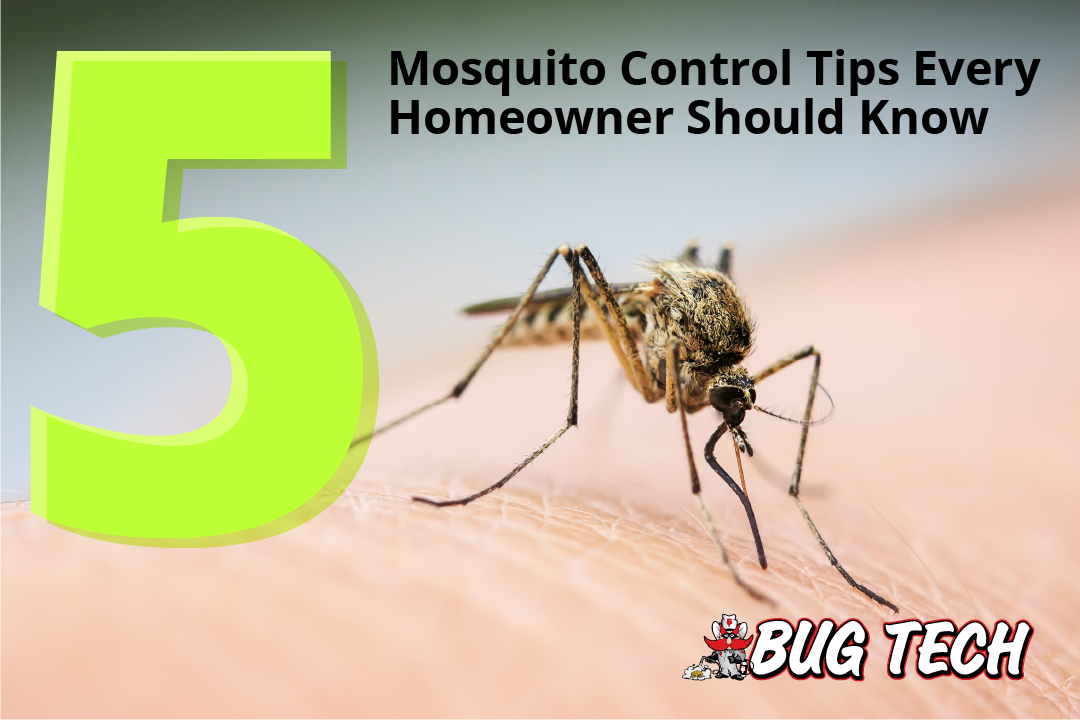
Is your backyard buzzing? While we want to enjoy friends and family over the barbecue, nothing can ruin backyard festivities faster than mosquitos. Not only are they annoying and itchy, but they can be dangerous to our health. Mosquitoes are known as vectors- that means they can carry and transmit diseases to humans such as dengue, Zika, Chikungunya, West Nile fever, and malaria. While deaths from mosquitos are rare, people get sick from mosquitoes every year.
For most of us, a mosquito bite will only make us crazy with itching. But for those who have allergies to mosquito bites, or Skeeter Syndrome, may experience extreme swelling, bruising, and even blistering when bitten by mosquitoes. So, the takeaway? Mosquitos are more than annoying; they can be harmful to humans, so knowing how to keep your home and family protected from pests this summer is crucial.
HERE ARE 5 MOSQUITO CONTROL TIPS EVERY HOMEOWNER SHOULD KNOW:
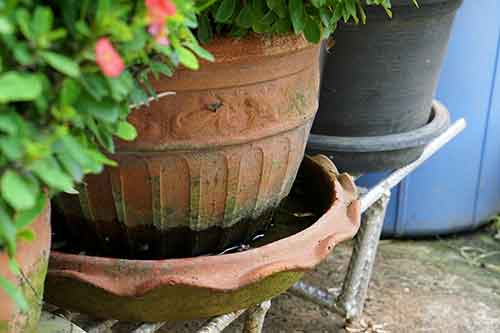
#1 GET RID OF STANDING WATER
Anyone who has lived in West Texas knows how hot and dry summertime can be. But even a little bit of moisture can invite mosquitoes to breed in your yard. Mosquitos will lay eggs in even the tiny amount of water that will fit in a bottle cap. Once mosquitoes lay eggs, it only takes four days for the mosquito eggs to mature into nymphs. That means rain on a Wednesday can produce backyard mosquitos for your Saturday evening party.
Different types of water will attract different types of mosquitoes. Permanent water mosquitoes prefer to lay their eggs near the edges of lakes and ponds or in containers that hold water. Floodwater mosquitoes lay their eggs in moist soil or containers above the waterline. So temporary pools of water in your yard created by rains or containers that fill up after a shower are an inviting habitat.
That means it's crucial to get rid of standing water in your yard and around your house. Eliminating the water is your best chance at residing mosquitos around your home. Don't leave lawn equipment out in the rain. Wheelbarrows or watering cans that fill up with water are an inviting habitat for mosquitos. Water-filled old tires, buckets, and even pool covers can become a breeding ground for mosquitoes. Dump out all standing water, and turn receptacles upside down to keep out the water.
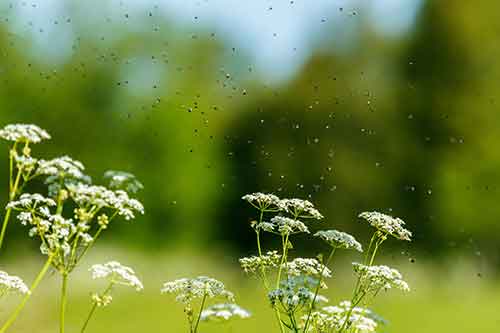
#2 KEEP FOLIAGE UNDER CONTROL
Mosquitos like to keep cool and hidden in tall grasses, weeds, and bushes. During the day, mosquitos seek protection from the sun and the wind. Don't let mosquitoes make your outdoor space their home. Keeping your yard mowed and your bushes trimmed can help eliminate mosquitos. Even natural yard debris like leaves, branches, and grass clippings are prime areas for mosquitos to live and breed. Access your yard. If you've got untrimmed hedges, tall grass, and even low-hanging tree branches, you can bet you are attracting mosquitos.
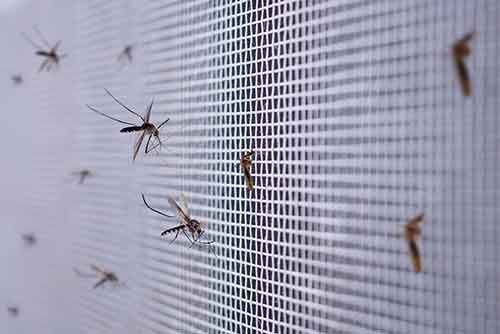
#3 USE YOUR SCREENS
There's no better bug-proof barrier than doors, walls, and screens. While it's nice to feel the breeze and let a little of the outdoors in, we want to be sure to keep anything that bites and buzzes outside.
When it comes to mesh screens, size does matter. Did you know that most adult mosquitoes are between 3 and 6 millimeters? That means standard mesh screens with openings of about 1 millimeter are too small for mosquitos to pass through. That makes screens a great way to keep doors and windows open and still provide a reputable barrier from bugs.
Be sure to keep your screens in good shape. Check frequently for a proper seal along the edges and repair any tears or holes in the screen. Consider screening in your porch as well. There's no better way to enjoy a mild summer evening outdoors than doing it from behind the protection of a mosquito-proof screen.
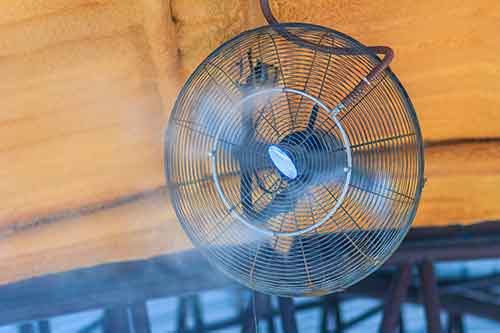
#4 USE OUTDOOR FANS
Keep cool and keep mosquitoes at bay with outdoor fans. According to Consumer Reports, fans can reduce mosquito landings by 45-65 percent! Not only do fans make it difficult for mosquitoes to fly against a steady breeze, but fans also disperse the carbon dioxide that humans exhale.
Mosquitos can sense CO2 from a distance of more than 30 feet. They are attracted to the air we exhale as well as our body heat and sweat. Carbon Dioxide tells the mosquito that a human is nearby and therefore a meal. That's why fans are such a good idea- they blow the CO2 away from humans and can throw mosquitos off our scent, so to speak.

#5 USE PERSONAL CHEMICAL REPELLENTS
Most store-bought mosquito repellent will keep mosquitoes from biting you. However, be sure to choose a repellent that contains DEET. DEET does not kill mosquitos but deters them. The EPA has approved DEET safe for use, registering approximately 120 products containing DEET by about 30 different companies. DEET effectively repels mosquitos for about 12 hours. Experts recommend using a repellent with at least 30% DEET for adults and 10-10% for children over two months old.
Apply mosquito repellent only to exposed skin and clothing- don't spray under clothing or near your eyes and mouth. To apply repellant to your face, spray on your hands first and then apply to your face.
While these mosquito control tips will certainly help repel these summertime pests, they won't kill or stop the rapid growth of the population. A professional pest management company like Bug Tech can cut down the mosquito population immediately and prevent the next outbreak. Bug Tech recommends that customers have mosquito treatment reapplied once every month to be most effective at preventing mating, egg-laying, and new larvae in the spring.

